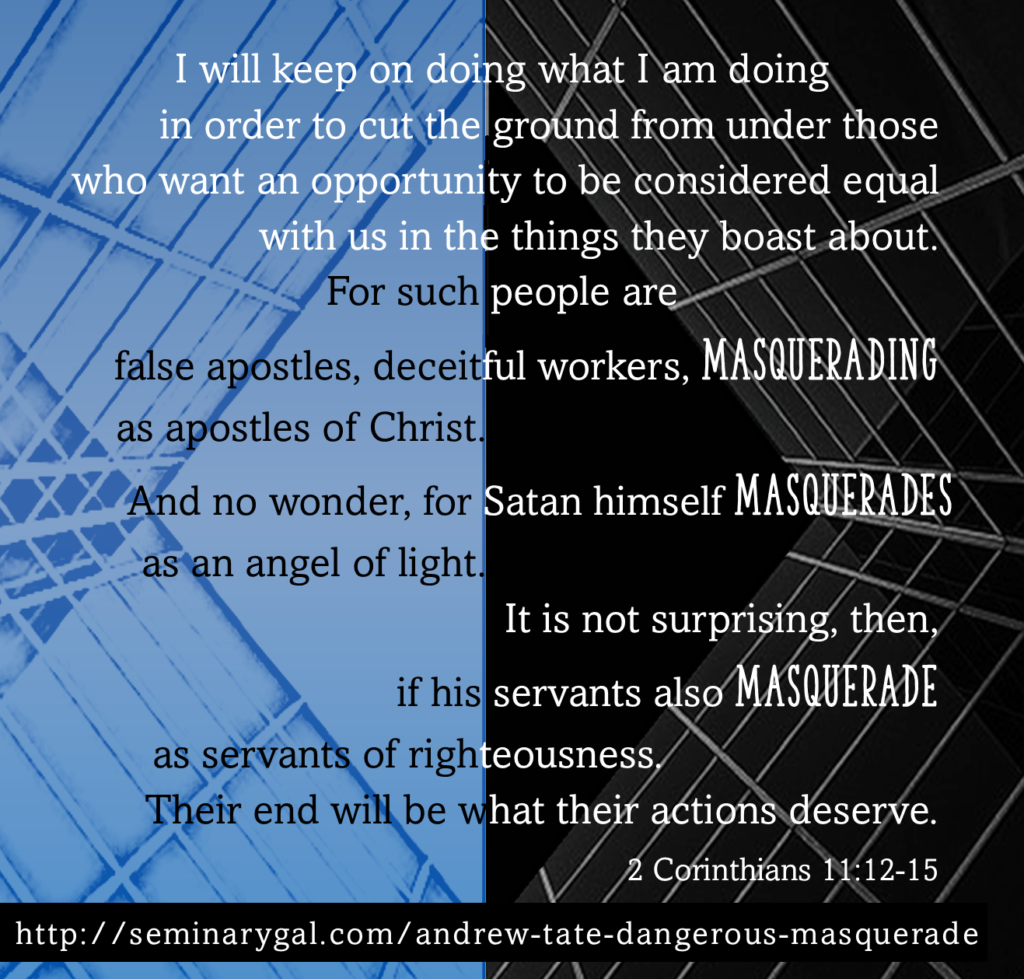Andrew Tate is dangerous, but not for the same reasons as he is experiencing house arrest in Romania. He is charged with human-trafficking of women through social media using the “lover boy method.”
No, Andrew Tate is dangerous—even more so than Mike Tyson, Kareem Abdul-Jabbar, Cassius Clay/Muhammad Ali, and Shaquille O’Neal before him. He’s more dangerous than Hip hop singer K’naan, boy band-pop singer Zayn Malik, comedian Dave Chappelle, rap singer Ice Cube, Cat Stevens, and others.
Andrew Tate is dangerous because his interview with Tucker Carlson highlights his high degree of street-smarts. Crafty. Savvy. He knows his audience in a nuanced fashion and plays the compartmentalized role to seduce the audience. Using, if you will, the “lover boy method” –a masquerade–to present a captivating version of himself. The people in the above paragraph are all Muslim, but don’t necessarily make a big deal of it. They are personally Muslim but not proselytizers for Islam. Tate is different. Very different.
Dangerous for the minds of young men searching for purpose, for meaning, for success, Tate preaches the strong body/strong mind, self-made man success that appeals to young men who grew up without fathers in their homes because Tate models that. He grew up without a father in his home, but has become successful (as he phrases it, the most Googled man on earth). He knows young men seek him out by the millions, revere him and his ideas, and he makes the most of it. Women, too, are seduced by his message of manhood, having grown up without father figures in their homes, too.
It’s not his manhood message that is the danger.
It’s the bait.

.
If you watched his interview—as a Christian with a discerning ear—you’ll notice that in prison, he said “he did pushups and read the Quran.” He doesn’t like to mention it (but did) that he is incredibly charitable toward those malnourished in Islamic countries. And toward the end of the interview, he specified clearly, “I am Muslim.”
Questions for further thought:
How do generic references to “was atheist” but “found God”, the importance of suffering, and other unspecified God references appeal to Christians? The Apostle Paul understood this very danger, writing:
“I will keep on doing what I am doing in order to cut the ground from under those who want an opportunity to be considered equal with us in the things they boast about. For such people are false apostles, deceitful workers, masquerading as apostles of Christ. And no wonder, for Satan himself masquerades as an angel of light. It is not surprising, then, if his servants also masquerade as servants of righteousness. Their end will be what their actions deserve.” (2 Corinthians 11:12-15)
Think for a moment about “lifestyle evangelism”. If you were the devil, would you pick someone savvy, articulate, well-dressed, living in a mansion, successful by world standards, a self-made man, a celebrity to talk about “God” in a way to bring people in and then seduce them to be followers of another faith tradition by their wanting to emulate the celebrity?
Islam is not opposed to lying to achieve its ends, it’s not only permissible but lauded. How might a nuanced message (lying) deception for an undiscerning ear be dangerous?
Look over the list of Muslims in the second paragraph. It’s clear: Islam knows how to pick them, keep them, and use them. Celebrities, success stories, athletes. How might these appeal to young men and seduce them away from Christianity at a time in our culture when Christianity and manhood are waning?
===
The Prism of Manhood series includes:
A Prism of Manhood | Seminary Gal A Prism of Manhood | Making the Theological Understandable